In the ever-evolving world of SEO, keyword research remains the backbone of a successful digital strategy. Whether you’re looking to boost your website’s visibility, attract highly targeted traffic, or create content that truly resonates with your audience, the right keywords make all the difference. But how do you find the best keywords for your business? That’s where SEO keyword research tools come in.
Tools like Google Keyword Planner, SEMrush, and others help you optimise your content by uncovering valuable insights, such as search volume, competition levels, and user intent. By leveraging these tools, you can outrank competitors, drive more organic traffic, and maximize your SEO ROI.
In this blog post, we’ll dive deep into the best keyword research tools, how to use them, and why they’re essential for crafting a winning SEO strategy. Let’s get started!
The Best Free & Paid Keyword Research Tools Compared (2025 Edition)

Finding the right keywords can make or break your SEO strategy. With dozens of tools available, we’ve tested and ranked the top options to help you choose wisely. Here’s our breakdown of the most powerful free and paid keyword research tools this year.
1. Best All-Around Paid Tool: Semrush keyword research
The industry favorite for comprehensive SEO analysis, SEMrush goes beyond basic keyword research to provide complete competitive intelligence. Its intuitive dashboard makes it easy to track rankings while uncovering hidden opportunities.
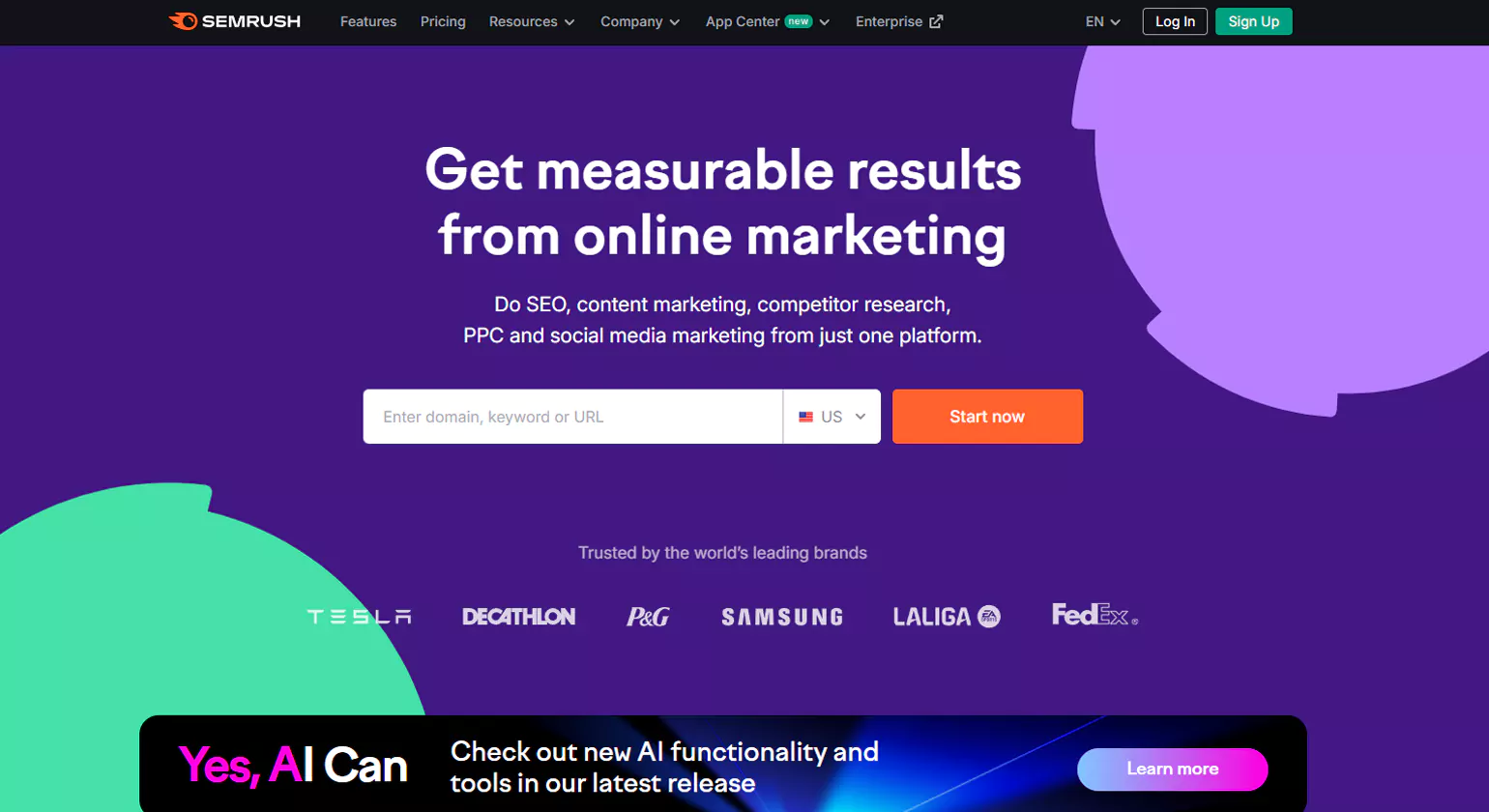
Key Features:
-
“Keyword Magic Tool” generates thousands of keyword ideas
-
Accurate search volume and difficulty scores
-
Competitor keyword gap analysis
-
Position tracking and SERP analysis
-
Content optimisation suggestions
Pricing: Starts at $129.95/month
2. Best for Competitor Research: Ahrefs best keyword research tool
Ahrefs dominates backlink analysis while offering one of the most accurate keyword databases available. SEO professionals rely on its detailed metrics to reverse-engineer competitor strategies.

Key Features:
-
10B+ keyword database (largest in the industry)
-
“Content Gap” reveals missing keyword opportunities
-
Best-in-class backlink analysis
-
Rank tracking with historical data
-
Site audit capabilities
Pricing: Starts at $99/month
3. Best Budget Paid Tool: Ubersuggest seo keyword research tool
Neil Patel’s affordable alternative packs surprising power for its price point. Perfect for solopreneurs and small businesses needing reliable data without enterprise costs.
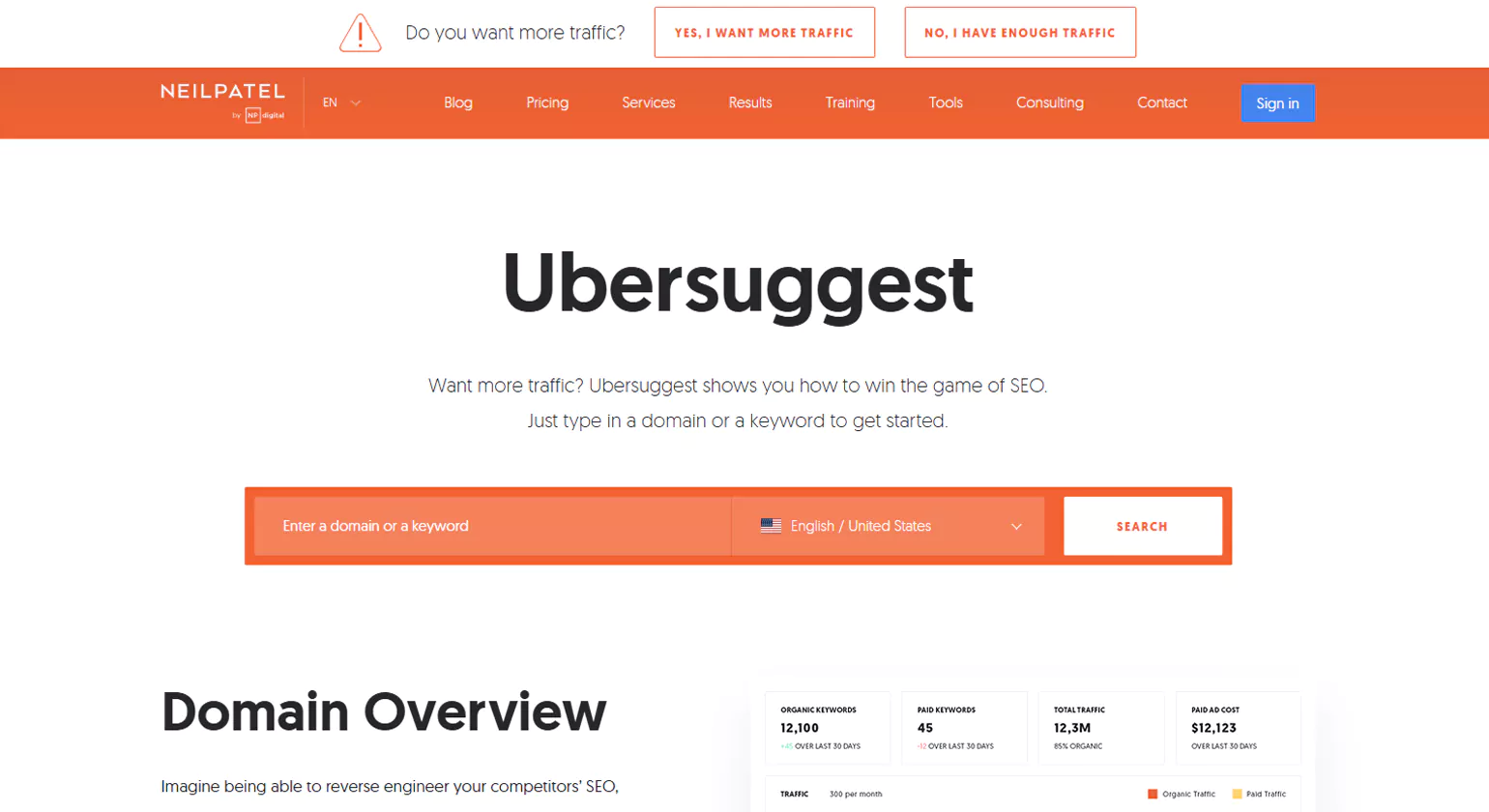
Key Features:
-
Keyword difficulty and volume metrics
-
Content ideas generator
-
Competitor analysis reports
-
Basic backlink data
-
User-friendly interface
Pricing: 29/month or 290/year
4. Best Free Tool: Google Keyword Planner Free
The go-to free option for both PPC and SEO marketers. While designed for Google Ads, it provides valuable search volume data directly from Google’s database.
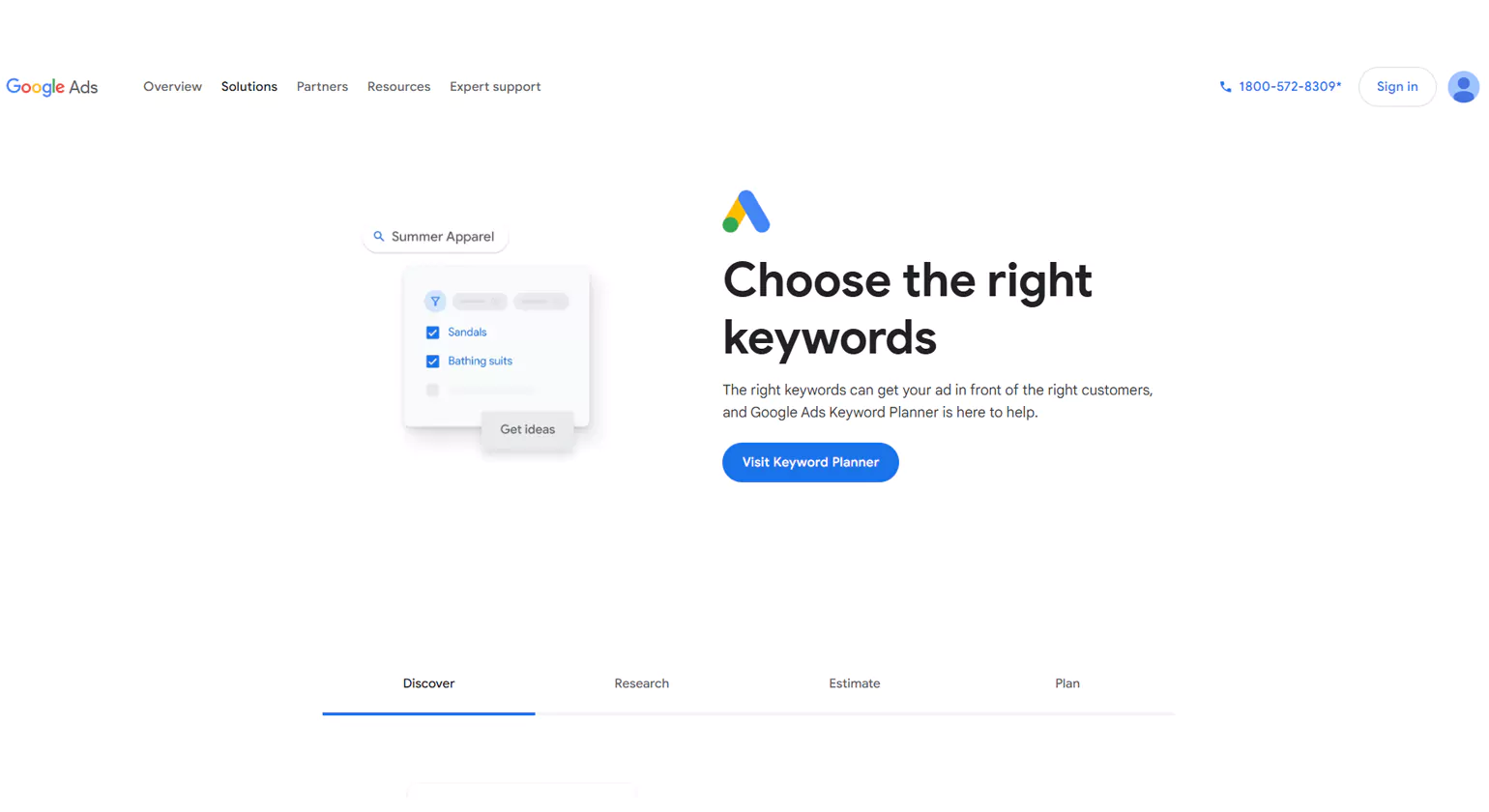
Key Features:
-
Free access to Google search data
-
Historical metrics and trends
-
Cost-per-click estimates
-
Location-based search volume
-
Basic competition levels
Limitation: No keyword difficulty scores
5. Best Google keyword research tool Free Alternative: AnswerThePublic
This visual tool excels at finding question-based keywords and understanding search intent. Its unique “search cloud” display helps content creators instantly spot opportunities.
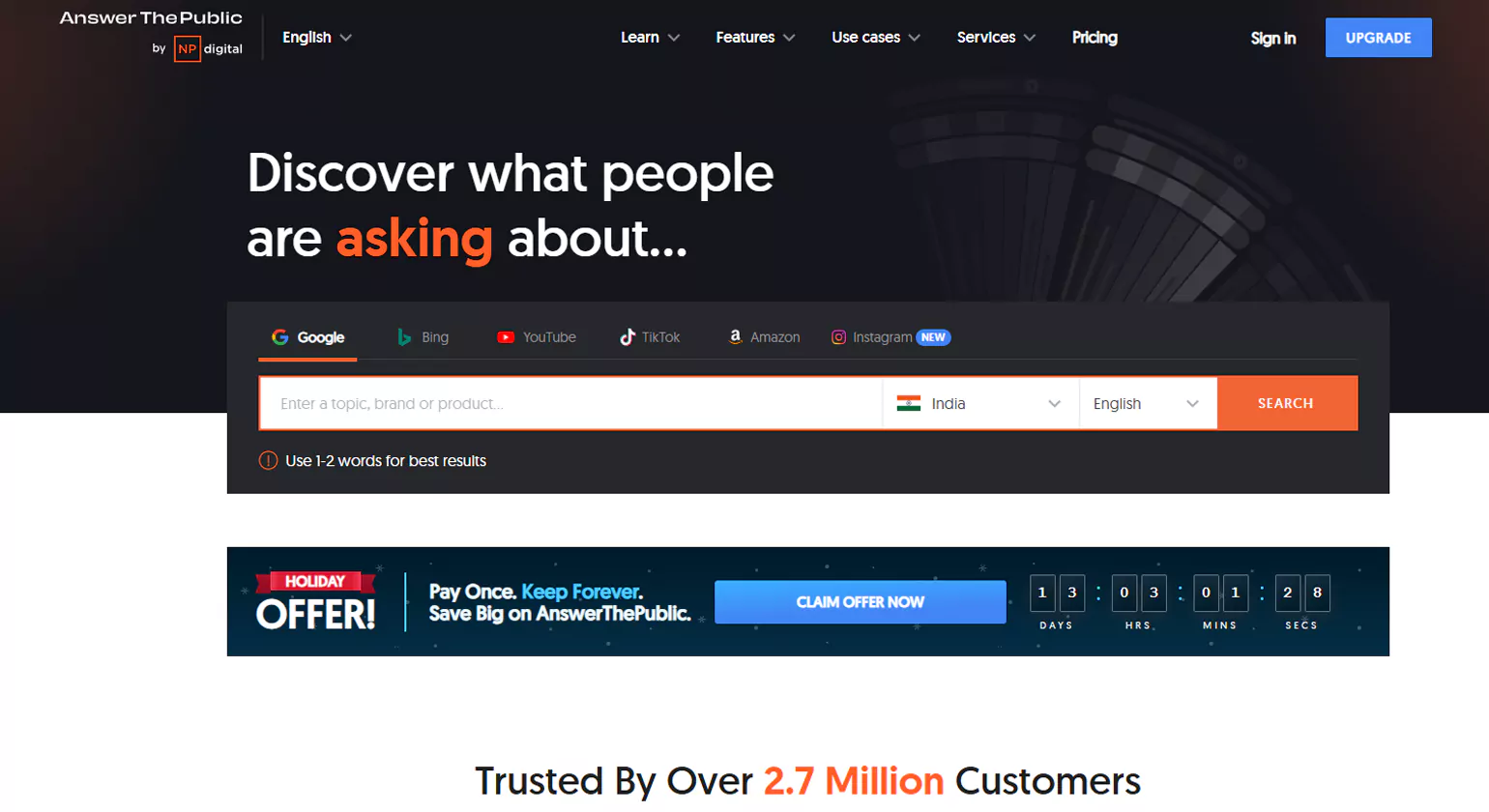
Key Features:
-
Visual keyword mapping
-
Question and preposition-based queries
-
Localized search data
-
Comparison feature
-
Basic free plan available
Pricing: Free tier + paid plans from $99/month
Which Tool Should You Choose?
-
SEO beginners: Google Keyword Planner + Ubersuggest
-
Content teams: SEMrush + AnswerThePublic
-
Agencies: Ahrefs + SEMrush combo
-
E-commerce: Ahrefs for product keyword research
Best Keyword Research Tool List
6. Best for Beginners: Moz Keyword Explorer
Moz offers one of the most beginner-friendly keyword research experiences while still providing enterprise-level data accuracy. Their proprietary “Priority Score” helps you quickly identify the best keyword opportunities by balancing difficulty and potential traffic.
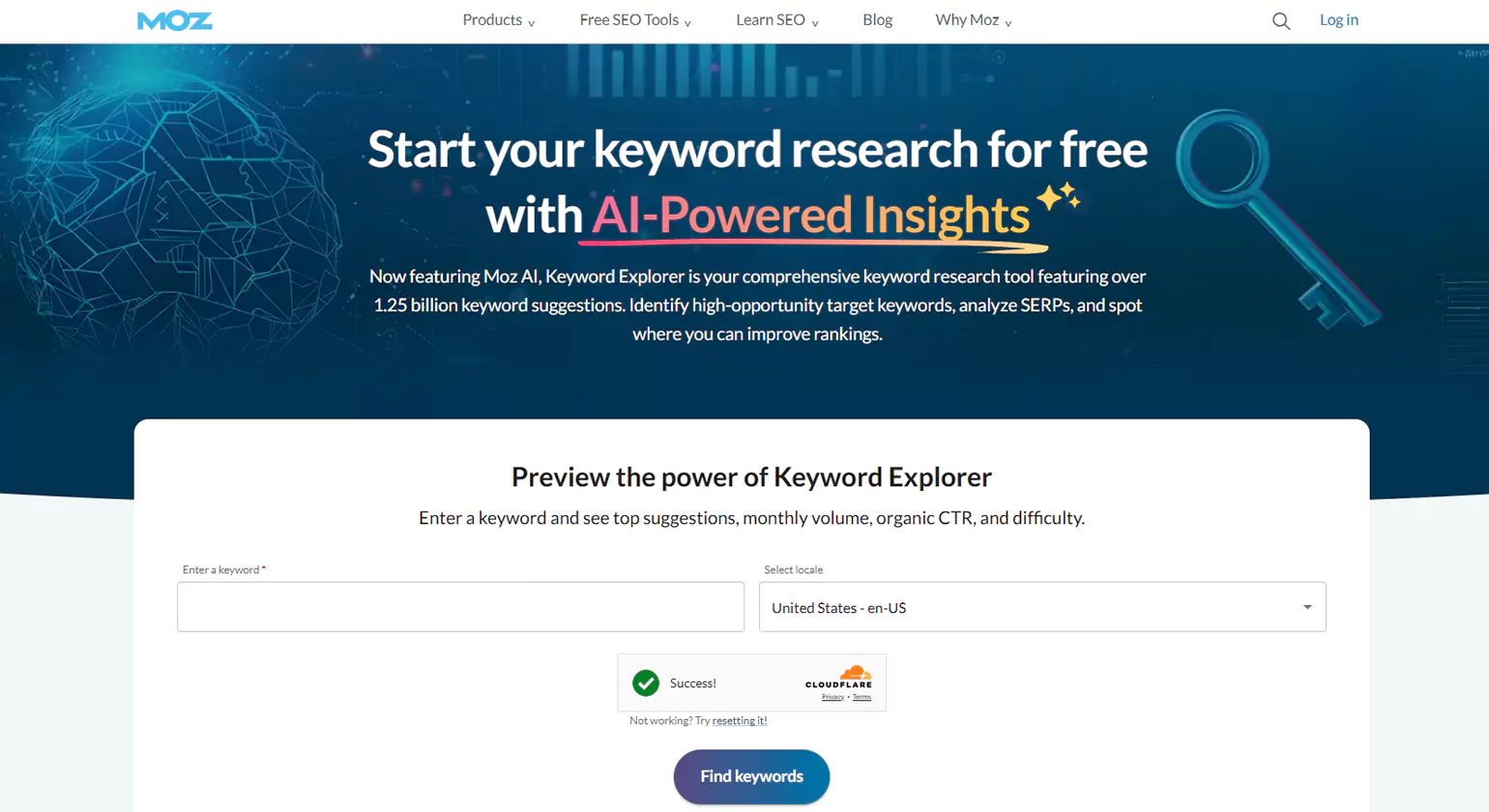
Key Features:
-
Priority Score algorithm (combines difficulty and opportunity)
-
SERP analysis shows who’s ranking for each keyword
-
Keyword suggestions with monthly volume data
-
Organic CTR curve predicts click-through rates
-
Free plan with 10 queries/month
Pricing:
-
Free version available
-
Paid plans start at $99/month (includes full Moz Pro suite)
7. Best for Long-Tail Keywords: KWFinder
KWFinder by Mangools specialises in uncovering low-competition, high-potential long-tail keywords with its intuitive interface and accurate metrics.
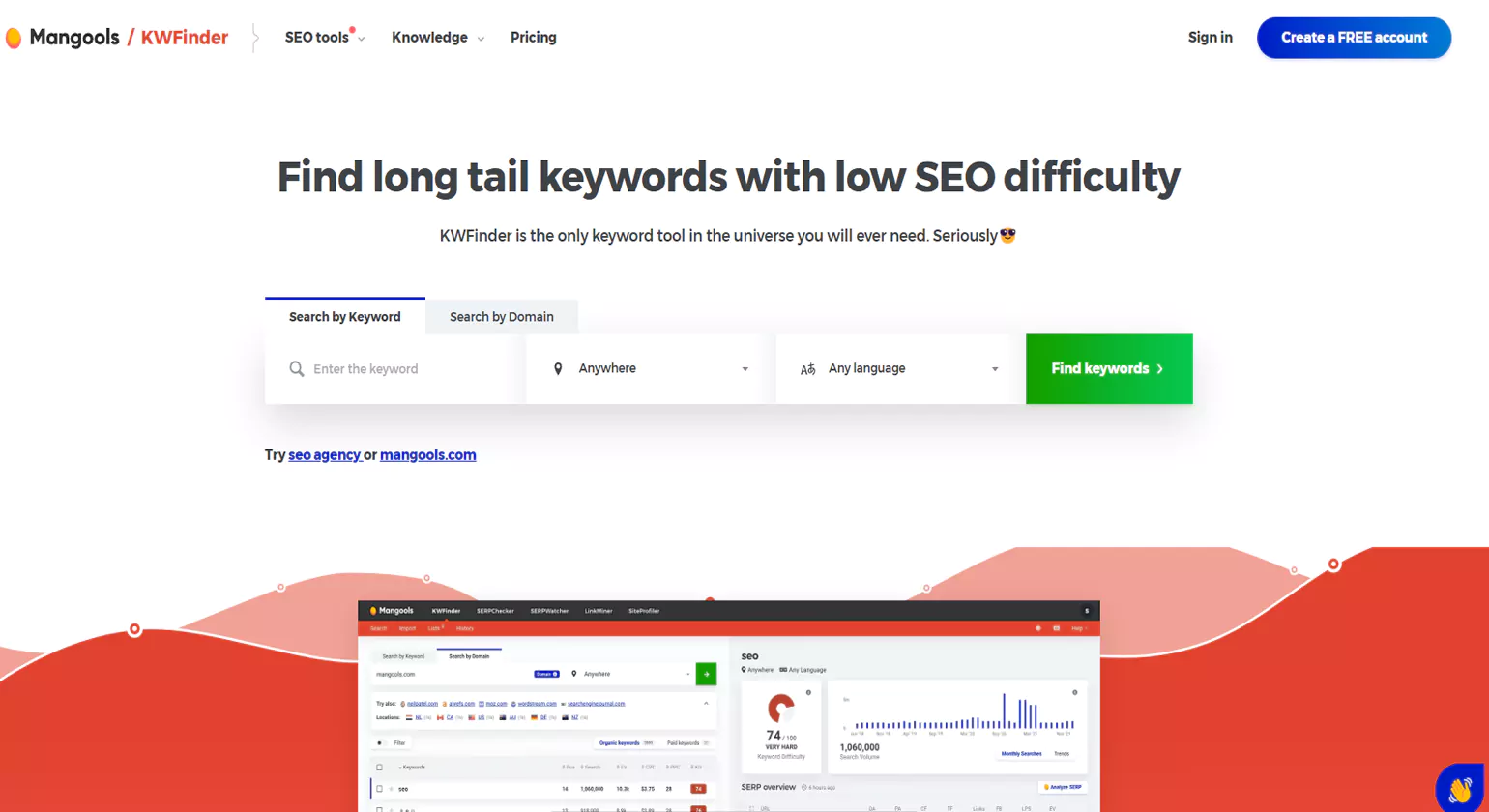
Key Features:
-
5,000+ keyword suggestions per query
-
Accurate difficulty scores (1-100 scale)
-
Local & multilingual keyword research
-
SERP preview with competitor analysis
-
Rank tracking for unlimited keywords
Pricing: Starts at $29/month (includes all Mangools tools)
8. KeywordTool.io: Best for Multilingual SEO
This tool generates keyword suggestions for Google, YouTube, Bing, Amazon and more across 192 languages.
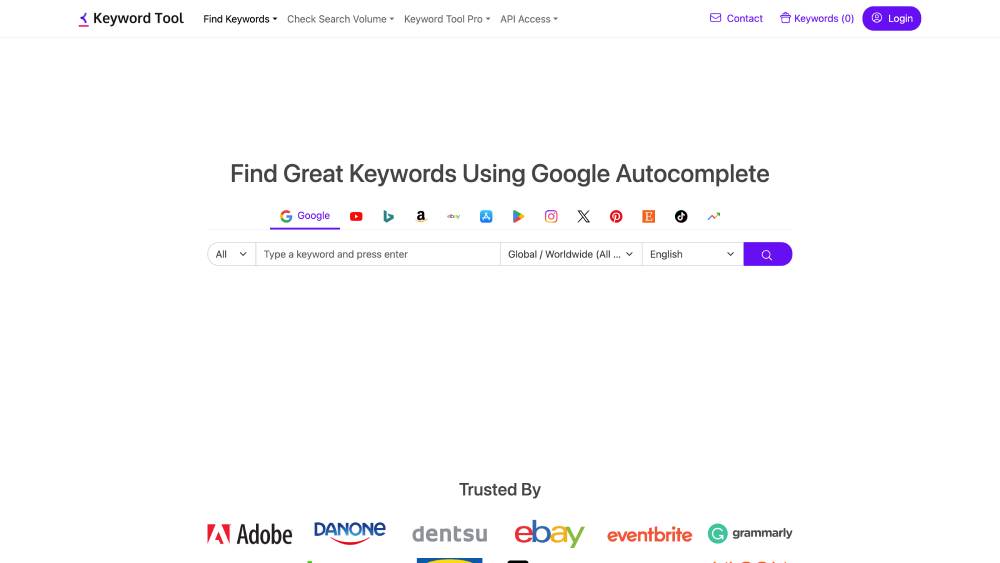
Key Features:
-
Autocomplete-based suggestions from multiple platforms
-
YouTube/Amazon specific keywords
-
Search volume & CPC data
-
Question/prefix/suffix variations
-
Basic free version available
Pricing: Free tier + paid plans from $69/month
Perfect For: International marketers and eCommerce sellers needing cross-platform keyword data.
9. SECockpit: Most Affordable for SEO professionals
SECockpit offers enterprise-level keyword data at surprisingly affordable prices with unique filtering capabilities.
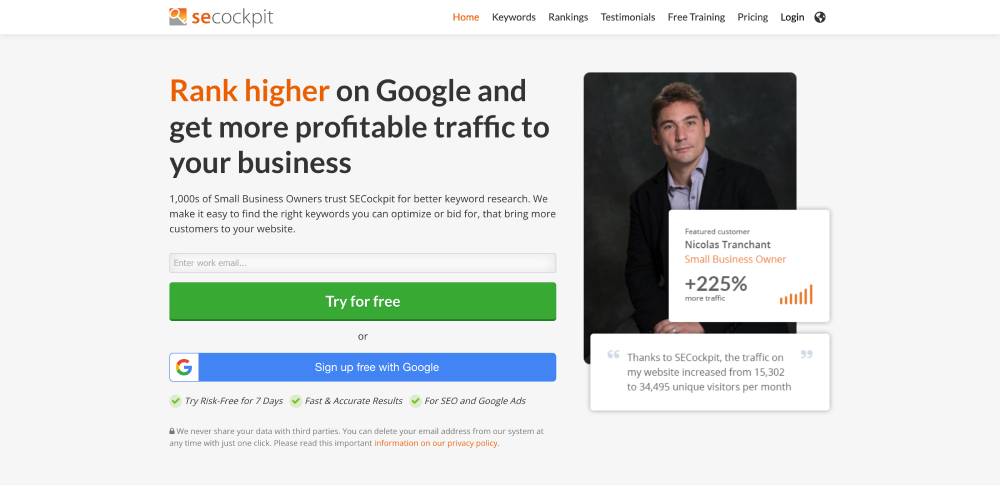
Key Features:
-
10 M+ keyword database with fresh data
-
AI-powered keyword clustering
-
Advanced filtering (e.g., “contains numbers”)
-
PPC/SEM data integration
-
White-label reporting
Pricing: Just €97/month (≈$105)
Standout Advantage: Best cost-to-features ratio for agencies handling multiple clients.
10. Best for eCommerce: Keyword Tool Dominator
Keyword Tool Dominator focuses on niche keyword tools tailored for platforms like Amazon, eBay, and Google, offering unique keyword suggestions. Specialising in product research, this tool extracts converting keywords from Amazon, Etsy, eBay and Walmart.
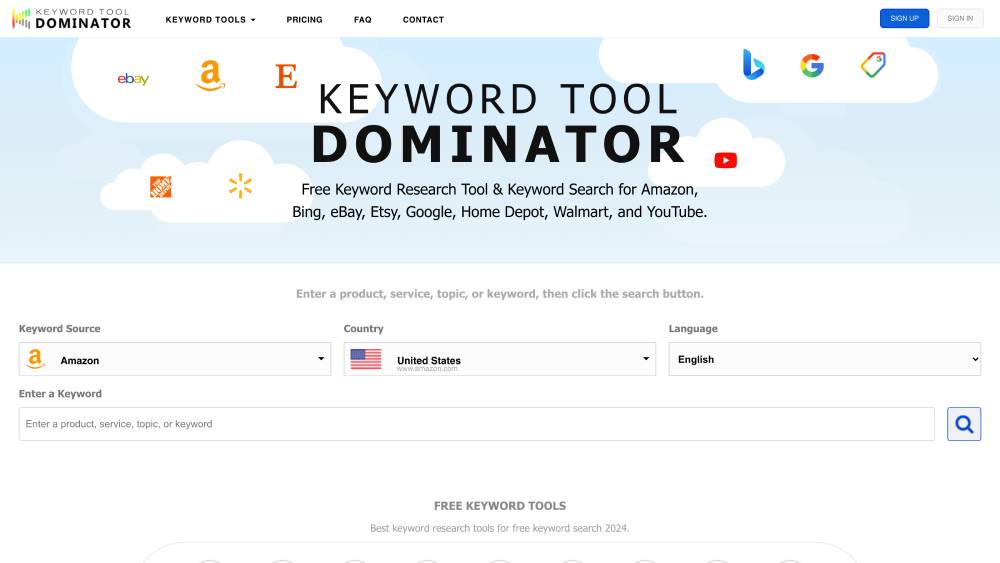
Key Features:
-
Amazon autocomplete scraper
-
Product ranking tracker
-
Search volume estimates
-
Competitor product analysis
-
Seasonal trend detection
Pricing: $37/month (eCommerce-focused plans)
Ideal For: Dropshippers, Amazon FBA sellers, and eCommerce SEO specialists.
11. Jaaxy: Best keyword research tool for Affiliate Marketers
Jaaxy combines traditional keyword research with AI-powered suggestions and a unique “Brain” feature for content optimisation.
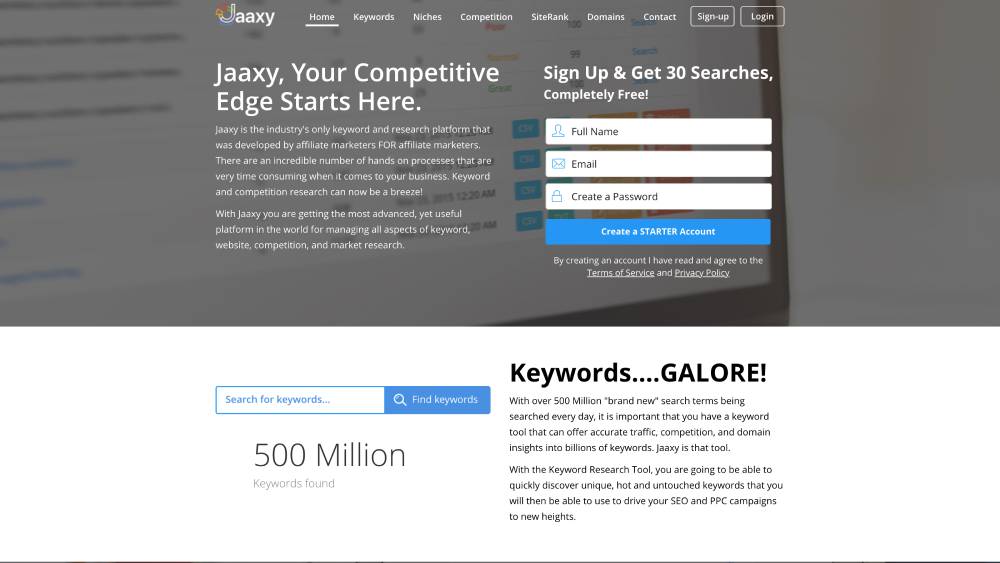
Key Features:
-
“Keyword Brain” suggests related concepts
-
Traffic potential scores
-
Site rank tracking
-
Alphabet soup suggestions
-
Domain analysis tools
Pricing: $49/month (includes training resources)
12. Best Free Browser Extension: Keyword Surfer
Keyword Surfer (by Surferseo) revolutionises keyword research by delivering instant data directly in your Google search results. This powerful Chrome extension provides real-time metrics without leaving your browser.
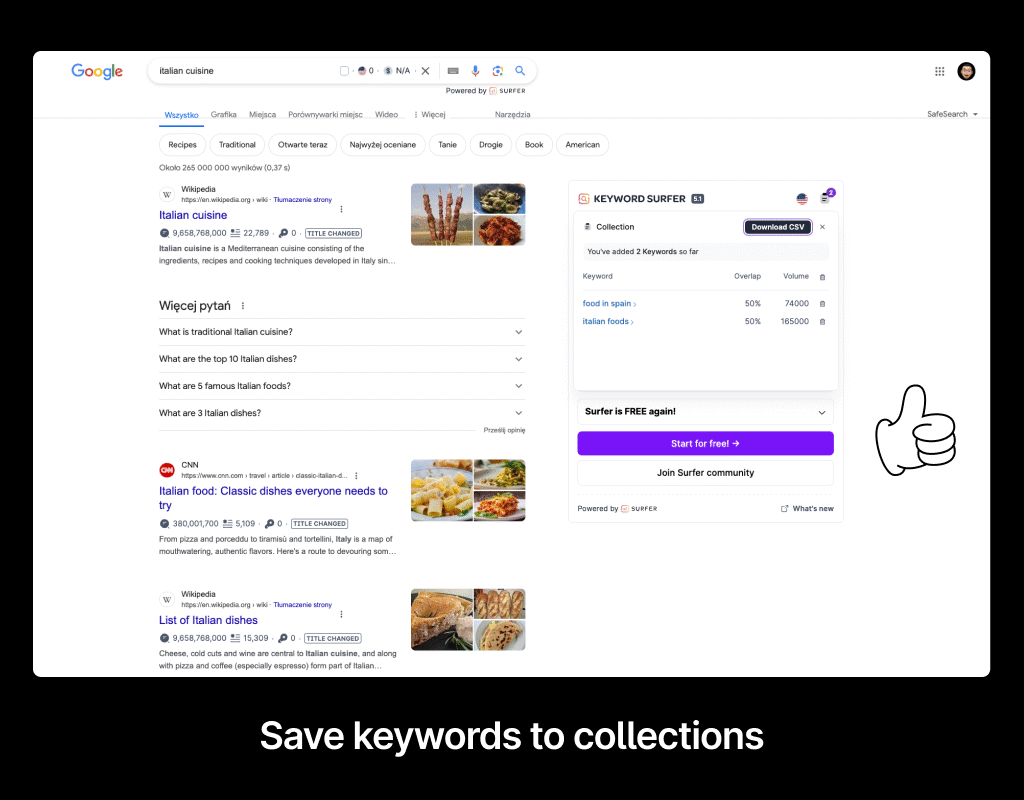
Key Features:
-
Instant search volume for every Google query
-
Keyword suggestions with difficulty scores
-
CPC and competition data
-
Country-specific metrics (supports 15+ regions)
-
Content length recommendations
-
100% free with no query limits
How It Works:
-
Install the Chrome extension
-
Search for anything on Google
-
See keyword data appear beside results
-
Click suggestions to explore related terms
Why Marketers Love It:
-
Zero learning curve – works automatically
-
Perfect for content ideation while browsing
-
A great complement to paid tools
-
Shows competitor word counts in SERPS
Pricing: Completely free (premium Surferseo features optional)
How to Use Keyword Research Tools for SEO Success
Keyword research is the foundation of any strong SEO strategy, but simply finding keywords isn’t enough. To truly boost rankings, drive targeted traffic, and outperform competitors, you need to use keyword tools effectively. Here’s a step-by-step guide to maximizing their potential.

1. Brainstorm Relevant Keywords
Start by listing seed keywords related to your business, products, or services. Think like your audience: What phrases would they search for? Tools like AnswerThePublic can help uncover question-based queries.
2. Use Keyword Tools for Data-Driven Insights
Tools like Google Keyword Planner, SEMrush, and Ahrefs provide critical metrics like:
-
Search volume (how often a keyword is searched)
-
Keyword difficulty (how hard it is to rank for it)
-
Related keywords (additional opportunities)
This data helps you filter out low-value terms and focus on high-potential keywords.
3. Analyze Competitor Keywords
Spying on competitors’ keyword strategies reveals gaps in your own. Use tools like SEMrush’s Keyword Gap Analysis to see which keywords they rank for—and how you can outperform them.
4. Prioritize High-Impact Keywords
Not all keywords are worth targeting. Focus on those with:
-
Strong search volume
-
Reasonable competition
-
High commercial intent (if selling products/services)
5. Target Long-Tail Keywords
Long-tail phrases (e.g., “best “) may have lower search volume but often convert better because they match user intent more precisely.
6. Update Your Strategy Regularly
Search trends shift, and new keywords emerge. Revisit your keyword list every few months to stay ahead of competitors and algorithm changes.
Which is the best tool for free keyword research for blogging?
For bloggers starting, the best free keyword research tools are Google Keyword Planner (for reliable search volume data), AnswerThePublic (to find question-based long-tail keywords), and Ubersuggest’s free version (for basic keyword suggestions and competition analysis).
Additionally, Google Trends helps identify trending topics, while KeywordTool.io’s free plan provides autocomplete-based keyword ideas. For a balance of usability and data,
Moz Keyword Explorer (10 free searches/month) offers valuable difficulty scores. These tools help bloggers find low-competition keywords without a budget, though upgrading to paid tools like SEMrush or Ahrefs later provides deeper insights.
What is the best free keyword research tool for beginner article writers?
For beginners writing articles, AnswerThePublic is the best free tool, it reveals real search questions (like “how to…” or “best…”) that make perfect article topics. Pair it with Google Keyword Planner (for search volume) and Ubersuggest’s free version (for competition checks) to find low-competition keywords easily.
What is the best keyword research tool for YouTube?
The best YouTube keyword research tools include:
-
TubeBuddy (best for tags & optimisation)
-
VidIQ (best for competitor analysis)
-
KeywordTool.io (best for YouTube autocomplete suggestions)
-
Ahrefs (best for advanced SEO + YouTube keywords)
-
Google Trends (best for trending topics)
4. What’s the difference between TubeBuddy and Vidiq?
| Feature | TubeBuddy | VidIQ |
|---|---|---|
| Best For | Tags & SEO optimisation | Competitor research |
| Keyword Scores | Yes (TB Score) | Yes (IQ Score) |
| Trend Alerts | Limited | Stronger analytics |
| Pricing | Free + Paid (9−49/mo) | Free + Paid (7.50−99/mo) |
What is the Fiverr keyword research tool?
Many sellers use Fiverr Analytics, which tracks search volume, competition, and trending gig keywords directly on the platform. This helps sellers optimize their gig titles, tags, and descriptions for better visibility. For deeper insights, check gigs that include Fiverr SEO audits, ranking reports, and buyer intent analysis. These help you target high-converting keywords that attract more orders. Always verify seller reviews and samples to ensure data accuracy before purchasing.
Final Thoughts
Keyword research isn’t just about finding words, it’s about understanding your audience’s needs and creating content that ranks. By using the right tools and following this process, you’ll drive more organic traffic, outrank competitors, and boost conversions.



